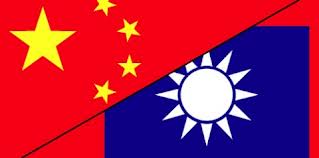Though last week’s official visit to China by Taiwan’s Mainland Affairs Council Minister Wang Yu-chi was largely uneventful, The Diplomat’s J. Michael Cole writes that the most significant result may have been a propaganda coup for Beijing:
In reality, the fanfare was much ado about, well, not much. Undoubtedly, there is some significance to the official exchanges and to Wang’s getting away with referring to Taiwan under its official title, the Republic of China (ROC), while visiting the Sun Yat-sen Mausoleum in Nanjing. But throughout the visit, Chinese officials consistently went out of their way to “correct” Wang on Taiwan’s designation by framing it as the “Taiwan area,” with the implicit notion that Taiwan is part of China, as per official PRC policy. Furthermore, as Tsai Ing-wen, a former chairperson of Taiwan’s Democratic Progressive Party (DPP), observed in a press release on the day of Wang’s return to Taiwan, the official visit will only be meaningful — and ultimately beneficial to Taiwan — if exchanges become systematically official and involve other government agencies.
There is noting wrong with liberalizing ties across the Taiwan Strait, and efforts to facilitate government-to-government relations should be encouraged. However, we must never lose sight of the fact that the situation in the Strait is not a conventional one, in that one side, China, does not recognize the existence of its counterpart as a sovereign state. In fact, Beijing perseveres in its efforts to swallow Taiwan, which it regards as a renegade province awaiting “reunification.” In light of this, and absent any signals that could indicate a change of heart within the Chinese Communist Party (CCP), we must regard Beijing’s willingness to allow a Taiwanese government official to visit China with skepticism and awareness that ulterior motives might be involved.
As we assess the success of Wang’s visit (which is likely to be followed by a reciprocal visit to Taiwan by China’s Taiwan Affairs Office head Zhang Zhijun sometime within the first half of this year), it becomes clear that Beijing didn’t give, or risk, much. At most, it gave a much-needed boost domestically to the struggling Ma administration ahead of important year-end municipal elections and two years before the next presidential elections. It gave a semblance of official relations, without actually modifying its “one China” policy and ultimate “reunification” goal, which remains a core principle of the CCP. [Source]
If anything, The University of Nottingham’s Jonathan Sullivan claimed in The New York Times, the official talks had large implications back in Taiwan, where president Ma Ying-jeou has consistently pursued policies meant to strengthen cross-Strait ties:
Mr. Ma’s many opponents, including those in his own party, note that his enthusiasm for pursuing links with China is not in line with public opinion. Surveys over the past 20 years show a consistently large majority of Taiwanese, over 80 percent in the most recent poll late last year, support some version of the status quo. Support for immediate or future unification was less than 12 percent.
Mr. Ma’s approach will be put to the test in 2016 when voters go to the polls to choose his successor. Although some say that Mr. Ma has been overly accommodating, there is every reason to expect continuity in Taiwan’s policy toward China if the K.M.T. retains the presidency. A victory for the Democratic Progressive Party, on the other hand, is likely to bring about a period of uncertainty in China-Taiwan relations. Long a staunch defender of Taiwan’s autonomy, the D.P.P. has shown a willingness to engage with China, but the policy platform it recently put forward as a basis for conducting cross-Strait relations was swiftly rejected by Beijing.
Still, a D.P.P. victory would slow down the process, but is unlikely to reverse the long-term trend toward closer ties. [Source]
Meanwhile, Reuters reports that China is open to a meeting between president Xi Jinping and Taiwan’s Ma but is in no hurry to put it on the calendar:
Fan Liqing, spokeswoman of China’s Taiwan Affairs Office, told reporters the subject of a Xi-Ma summit was “not a topic for discussion” during last week’s landmark meeting between top Chinese and Taiwan government officials.
That meeting was an important step in pushing overall cross-Strait relations, she said, adding that further steps would follow, promising to benefit people on both sides of the Taiwan Strait.
“As for a meeting between the leaders on both sides of the Strait, we have said many times that this is something we have upheld for many years, and we have always had an open, positive attitude towards it,” Fan said. [Source]







